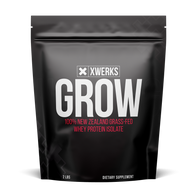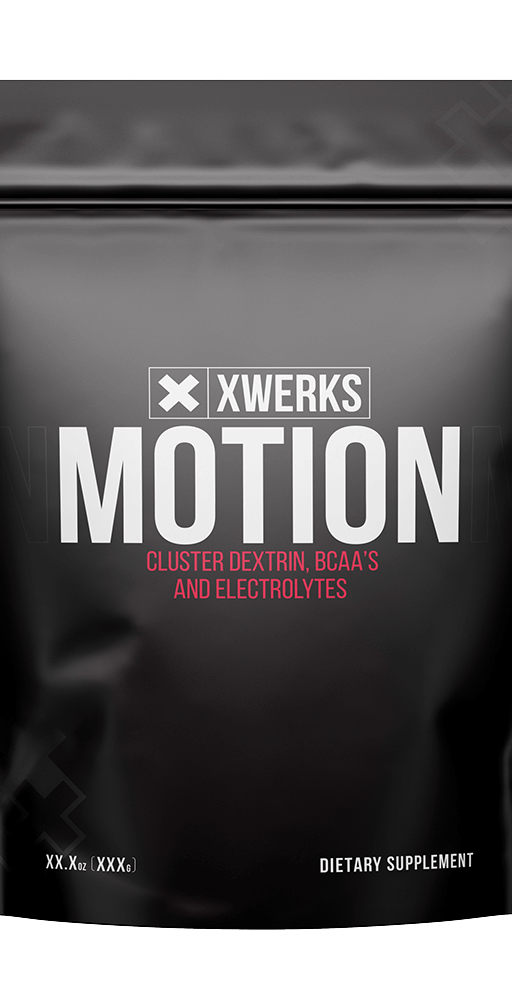Creatine, a naturally occurring amino acid derivative, has been the subject of numerous scientific studies due to its role in providing energy to our cells, especially muscle cells.
Often associated with sports nutrition, creatine supplementation has gained attention as a potentially beneficial regimen for various groups, including vegans.
This article aims to shed light on the importance of supplementing creatine for vegans and why it might be considered an essential part of their dietary plan.
Creatine: A Quick Overview
Creatine is produced naturally in our bodies, primarily in the liver, and is composed of three other amino acids: arginine, glycine, and methionine. It plays a pivotal role in the rapid production of energy in the form of adenosine triphosphate (ATP) during high-intensity, short-duration exercises such as sprinting or weight lifting. Additionally, creatine plays an important role in brain function and cognition.
Most of the creatine in our bodies is stored in skeletal muscles, with the remainder found in the brain and other tissues. While the body can manufacture its own creatine, we also obtain a significant portion from dietary sources—primarily meat and fish.
This is where the diet of a vegan or vegetarian comes into focus as they typically consume no animal-derived food.
Creatine and Vegans: The Connection
As vegans refrain from consuming animal products, their dietary intake of creatine is effectively null. While our bodies can synthesize creatine, research has shown that blood and tissue levels of creatine tend to be lower in vegetarians and vegans compared to omnivores.
Lower levels of creatine might affect both physical and cognitive performance. In the realm of sports and physical exercise, studies have indicated that vegetarians supplementing with creatine experience significant increases in muscle creatine, lean body mass, and overall exercise performance compared to those not supplementing.
On the cognitive front, some research suggests that creatine supplementation can help improve memory and intelligence scores among vegetarians.
Vegans are usually deficient in creatine for several reasons, primarily related to the absence or limited intake of animal-derived foods.
Here are the main factors contributing to creatine deficiency in a vegan diet:
-
Lack of Dietary Sources: The most significant source of creatine in the diet comes from animal products, such as meat, fish, and poultry. Since vegans avoid all animal-derived foods, they miss out on these primary sources of creatine.
-
Endogenous Synthesis: While the human body can synthesize creatine endogenously from specific amino acids (arginine, glycine, and methionine), the rate of synthesis might not be sufficient to fully meet the demands of high-intensity exercise and physical activity.
-
Lower Muscle Creatine Stores: Studies have shown that vegans tend to have lower levels of creatine in their muscles compared to individuals who consume animal products regularly. Lower muscle creatine stores can impact high-intensity exercise performance and overall athletic ability.
-
Limited Creatine Precursors: Vegan diets are generally rich in carbohydrates and fiber from plant-based foods, but they might lack sufficient sources of creatine precursors (arginine, glycine, and methionine) that aid in endogenous creatine production.
-
Increased Creatine Expenditure: Athletes and individuals engaged in high-intensity exercise often have increased creatine turnover due to the demands of their training. This increased expenditure may not be adequately replenished through endogenous synthesis and plant-based foods alone.
-
Exercise-Induced Stress: Intense physical activity can lead to greater creatine loss through sweat and urine. Vegan athletes may find it challenging to maintain optimal creatine levels without targeted supplementation.
While more research is needed to fully understand the long-term implications of creatine deficiency in vegans, these initial findings point to the potential benefits of creatine supplementation.
Creatine Supplementation: An Important Consideration
Creatine supplementation might be beneficial for vegans for a few reasons:
-
Performance Enhancement: As previously mentioned, creatine supplementation can help improve athletic performance. It supports anaerobic strength and power, making it particularly beneficial for activities involving high-intensity, short-duration efforts.
-
Cognitive Benefits: Creatine isn't only about physical strength; it's also essential for brain health. The brain utilizes a significant amount of energy, and adequate creatine levels can support cognitive function. Vegans, due to their lower levels of creatine, may benefit from supplementation for its potential cognitive benefits.
-
Lean Body Mass: Creatine has been shown to increase lean body mass, making it an excellent supplement for those looking to increase muscle mass.
Safe Supplementation
Creatine supplementation is generally safe for most individuals, including vegans. However, as with any dietary supplement, it's recommended to consult with a healthcare provider or a nutritionist before starting any supplementation regimen. Also, it's important to ensure that the creatine supplement chosen is certified vegan to align with dietary ethics.
While the body can produce creatine on its own, the amount is typically insufficient for vegans due to the absence of dietary sources. Therefore, creatine supplementation (5g a day) may be a significant addition to a vegan diet, helping to maintain optimal creatine levels for both physical performance and cognitive function.
Concluding Thoughts
Creatine supplementation for vegans presents a unique opportunity to support overall health and performance. While the body can produce some creatine, the absence of creatine from dietary sources in a vegan diet can make supplementation a wise choice.





















